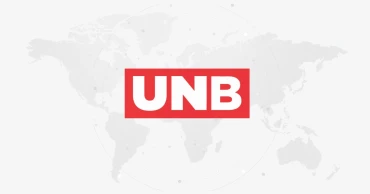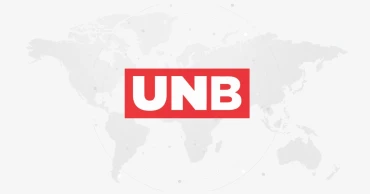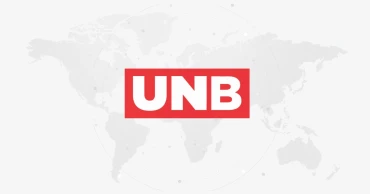Economic Relations Division
Bangladesh, ADB sign $1.3 billion loan agreements for four major projects
Bangladesh on Friday signed loan agreements worth $1.3 billion with the Asian Development Bank (ADB) to finance four major development projects focusing on climate resilience, renewable energy, transport infrastructure and reforms in the banking sector.
The agreements were signed between the Economic Relations Division (ERD) and ADB at a ceremony held at ERD in the capital.
Md. Shahriar Kader Siddiky, Secretary of ERD, and Hoe Yun Jeong, Country Director of ADB, signed the documents on behalf of the government of Bangladesh and ADB respectively.
“These agreements mark a significant step forward in our efforts to strengthen climate resilience, boost infrastructure, promote clean energy and ensure financial stability,” said ERD Secretary Md. Shahriar Kader Siddiky.
ADB approves $500 mln loan for Bangladesh banking sector reform
“The support from ADB will help us advance inclusive and sustainable development in line with our national priorities,” he said.
The projects are:
# $400 million for the Climate-Resilient Inclusive Development Programme (CRIDP): The programme aims to enhance climate resilience, reduce emissions, and promote inclusive growth. It includes co-financing of nearly $113 million from Agence Française de Développement and $400 million from the Asian Infrastructure Investment Bank. CRIDP will establish the Bangladesh Climate Development Partnership, enhance disaster risk financing, promote gender-responsive local adaptation, and support renewable energy and transport master plans.
# $200 million for the Power Transmission Strengthening and Integration of Renewable Energy Project: This initiative will upgrade power transmission infrastructure in rural districts including Bogura, Chandpur, Gopalganj, Habiganj, Pirojpur, and Satkhira. It will also support the integration of renewable energy in the southern Chattogram region, aiming to ensure reliable and inclusive access to electricity and create employment opportunities.
# $204 million under the SASEC Dhaka–Northwest Corridor Road Project (Tranche 4): The funding will support the expansion and modernisation of a 190-kilometre section from Elenga to Rangpur. The project is aimed at improving regional connectivity with Bhutan, India, and Nepal. It includes climate-resilient design elements and gender-responsive features such as footbridges and dedicated lanes for non-motorised transport.
# $500 million for the Stabilising and Reforming the Banking Sector Programme: This reform-focused programme will strengthen regulatory oversight, improve the quality of financial assets, and promote financial inclusion. It will enhance the capacity of Bangladesh Bank and address challenges related to non-performing loans.
ADB reaffirms robust support for Bangladesh’s reform drive, sustainable development
ADB Country Director Hoe Yun Jeong said the comprehensive support package will contribute significantly to Bangladesh’s long-term resilience and inclusive development goals.
8 months ago
ERD signs €5 mln grant deal with IOM to boost migration, reintegration services in Bangladesh
The Economic Relations Division (ERD) has signed a grant agreement worth Euro 5,000,000.00 with International Organization for Migration(IOM) to strengthen initiatives related to migration and reintegration.
The agreement titled ‘Strengthened Service Delivery Systems for Improved Migration Management and Sustainable Reintegration’ that was signed on Tuesday will contribute to implementing the four-year project by the International Organization for Migration with fund support from the European Union.
The project will support the initiatives of the Ministry of Expatriates' Welfare and Overseas Employment and Ministry of Foreign Affairs to strengthen initiatives related to migration and reintegration.
The objective of the project is to contribute to strengthening gender-responsive and right-based migration and reintegration services in Bangladesh that ensure safe and orderly migration practices and the sustainable reintegration of migrants and returnees.
The project aims to achieve this through two main outcomes: Strengthening Migration Service Delivery Systems and Supporting Vulnerable Returnees.
NBR lifts suspension of Tax Tribunal member Shafiqul, cites no reason
Md. Shahriar Kader Siddiky, Secretary of the Economic Relations Division, and Lance Bonneau, Chief of Mission, IOM Bangladesh signed the agreement.
Representatives from UN Wing of ERD and concerned Government agencies were present at the signing ceremony.
This project is built to support the Government’s priorities for migration and reintegration aligning the initiatives with global, regional and national development framework and priorities.
10 months ago
WB pledges support for Bangladesh's key reform initiatives
World Bank Country Director for Bangladesh Abdoulaye Seck on Monday reaffirmed the institution’s commitment to supporting key reform initiatives undertaken by Bangladesh’s interim government.
Seck said this when he made a farewell call on Chief Adviser Prof Muhammad Yunus at the State Guest House Jamuna.
The Chief Adviser thanked Seck, who is retiring in January, for support during his tenure at World Bank-supported projects in critical sectors like infrastructure, climate resilience, service process digitalisation, education, healthcare and poverty alleviation.
Seck told the Chief Adviser that the World Bank approved nearly $1.2 billion in three financings on December 19 to help Bangladesh build climate resilience and environmental sustainability while improving health, nutrition and water and sanitation services in Chattogram city.
Prof Yunus urges focus on attitudes, ethics in skilling young workforce
On Sunday, the Economic Relations Division (ERD) and the World Bank signed two financings totalling $900 million.
One of the projects will develop secondary cities by constructing climate-resilient and gender-responsive infrastructure along the economic corridor from Cox's Bazar in the south to Panchagarh in the north.
The other financing, a $500 million development policy credit to support green growth, will be disbursed to the national treasury by this month.
The World Bank’s development portfolio stands at about $ 45 billion since 1972, which has made a significant contribution to the development trajectory of Bangladesh, particularly in reducing poverty, ensuring sustained economic growth, and improving education, health, and disaster management.
Bangladesh Bank ready to ensure enhanced cash flow: Dr Yunus
The Chief Adviser wished Seck and his family good health on his retirement.
Special Envoy to Chief Adviser Lutfey Siddiqi, senior secretary for SDG affairs Lamiya Morshed and ERD secretary Md. Shahriar Kader Siddiky were among others present on the occasion.
1 year ago
Bangladesh clears payment of $318 million in Yuan to Russia for nuclear power plant
Bangladesh has recently approved payment of USD $318 million for payment to Russia in the Chinese currency of yuan for construction of the Rooppur nuclear power plant.
A meeting held recently between the Economic Relations Division and Russian officials decided that the payment will be made in yuan at a Chinese bank account, Uttam Kumar Karmkar, head of the European affairs of Economic Relations Division (ERD), Ministry of Finance confirmed to UNB.
He said that the decision was taken to use the Chinese currency yuan for debt repayment at a meeting of the ERD last Thursday.
Read more: Rooppur Nuclear Power Plant project delayed by Russia-Ukraine War: Yeafesh Osman
He said that although the decision has been taken to use Chinese currency to repay the loan, the transaction has not yet been completed. Payment details need to be clarified and resolved.
Citing the diplomatic sensitivity of the matter, he declined to comment further.
Dhaka's decision seems to have resolved the problem of making any payment to sanctions-hit Russia in the US dollar.
Read more: Return of Russian vessel carrying consignment for Rooppur won’t delay project work: Minister
Last year, Western countries excluded Russia from the Society for Worldwide Interbank Financial Telecommunications, or SWIFT, one of the world's payment systems, due to its military invasion in Ukraine.
The Rooppur nuclear power plant is being built in Bangladesh with a loan from Russia. But due to sanctions on Russia, it is not possible to pay in US dollars.
2 years ago
HCA signed, €609 million in loans approved by AFD for Bangladesh
In 2022, AFD and the Economic Relations Division of the government of Bangladesh signed a host country agreement (HCA) for the establishment of AFD activities in Bangladesh, a successful outcome of years of negotiations between the French and Bangladesh governments.
This was a crucial step which came after 10 years of operation and over 20 projects financed in the country, said a media release on Tuesday.
Agence Française de Développement (AFD) Group is a public financial institution that funds, supports and accelerates transitions towards a more just and sustainable world.
Read more: Govt to honour expats through National Expatriate Day: Momen
AFD has become a major development partner of Bangladesh.
For the single year of 2022, €278.3 million (loans and grants) were approved, and an unprecedented amount of €183.5m was disbursed.
“AFD has more than doubled the amount of its financing in the course of the last three years. This only bears witness to the trust between our two countries, France and Bangladesh. It is also thanks to the efforts of dedicated actors, AFD staff together with our colleagues of the Economic Relations Division of the Ministry of Finance of Bangladesh, that all this was possible. We look forward to continued cooperation between AFD and the ERD, our two countries, for the benefit of the citizens of Bangladesh that both our governments serve,” AFD Country Director for Bangladesh, Benoit Chassatte, said.
3 years ago
IMF loan is like a character certificate: PM’s advisor Mashiur
Mashiur Rahman, Economic Affairs Advisor to Prime Minister Sheikh Hasina, said on Thursday that the IMF loan is like a character certificate.
“If we get this certificate, everyone will show interest in giving us loans,” he told a seminar on ‘South-South and Triangular Cooperation: Tapping New Opportunities.’
The discussion was jointly organised by Economic Relations Division (ERD) and UNDP in the capital, Dhaka.
Read more: Government working on IMF’s conditions to get $4.5 billion loan
Mashiur said that the IMF’s lending as budget support means that the economic management of a country is sound.
“If this is the case, other countries or organisations will express interest in lending easily. The investment will also come along with it,” he said.
UN Resident Coordinator Gwyn Lewis and UNDP Resident Representative Stefan Liller were present as special guests while ERD Secretary Sharifa Khan presided over the function.
Read more: $4.5bn IMF loan: 1st instalment expected next Feb, says Mustafa Kamal
Policy Exchange of Bangladesh CEO and Chairman M. Masrur Reaz and Research and Policy Integration for Development (PRI) Chairman Dr. MA Razzaque presented the main articles on the topic.
Faizul Islam, Additional Secretary of ERD and UNDP’s Country Economist Nazneen Ahmed also spoke at the event.
3 years ago
Bangladesh receives record $8.41 bn foreign loans in 11 months
Bangladesh received a record $8.41 billion in foreign loans in 11 months of current FY2021-22, the Economic Relations Division said on Thursday.
At current exchange rate the amount is equivalent to Tk 78221 crore, the highest loan ever in a single fiscal year. The amount is 47 per cent higher than the previous fiscal year.
The ERD officials estimate that the foreign debt will exceed $9 billion by the end of the fiscal year on June 30, 2022.
After the economic crisis in Sri Lanka, there is a lot of talk about Bangladesh's foreign debt.
Also read: Default loans cross over 126 crore: Finance Minister
However, economists and analysts are dismissing the comparison between the two countries. They say foreign debt is still below 13 per cent of Bangladesh's GDP.
In case of Sri Lanka, it is close to 50 per cent.
Economist and researcher Ahsan H. Mansur said, "The leap has been made by receiving more loans than expected from various donor countries and organizations, including the World Bank and the ADB, to offset the effects of the two-year pandemic."
Analysis of ERD data shows that in the last FY2020-21, Bangladesh received $7.10 loan assistance from development partners.
Before that, in the fiscal year 2019-20, Bangladesh received $7.38 billion foreign loan that was the history of the country till FY 21.
Also read: FBCCI seeks loan moratorium till December
Foreign debt has been increasing in Bangladesh since the fiscal year 2017-18. In the same year, it jumped to $6.37 billion. Then in the fiscal year 2018-19 it stood at Tk6.54 billion.
3 years ago
Relations with Bangladesh now deeper, more extensive: JICA
Senior vice president of Japan International Cooperation Agency (JICA) Keiichiro Nakazawa has said Bangladesh is now one of the largest partners among the more than 100 partner countries.
“Over the past 50 years, the relationship between JICA and Bangladesh has become deeper and more extensive,” he said while celebrating the 50th anniversary of Bangladesh-JICA cooperation organized by the Economic Relations Division (ERD) and JICA in a city hotel on Thursday.
In the early days of cooperation, Nakazawa said, their focus was mainly on agriculture development. “Today, we are working in almost all sectors.”
Also read: JICA wants to install Incinerator plants to dispose medical waste
3 years ago
NBR to award 9 companies for paying highest VAT
The National Board of Revenue (NBR) will honour 9 firms on the National VAT Day for paying highest amount of Value Added Tax (VAT). The VAT department of the National Board of Revenue (NBR) on Wednesday released a list of awardees. Earlier the Economic Relations Division (ERD) published a gazette notification in this regard.
Read:NBR to organize month-long tax support service from Nov 1 December 10 is celebrated as the National VAT Day every year. The NBR will honour the highest tax payers of the fiscal year 2019-20 on this day. Nine firms under three categories- production, business and service- will receive the awards at a ceremony in Dhaka. The list of awardees includes Aristopharma Limited, Square Toiletries Limited and Maya Bidi Factory under the production category, SM Motors, AMCO Bajaj International and Union Motors Limited under business category and IDTCO Bangladesh Co. Ltd. Gray Advertising Ltd. and Robert Boss (Bangladesh) Ltd under service category. The VAT department of the National Board of Revenue has been regularly honoring the top VAT payers for several years.
Read: NBR directs big push to reach the revenue target for current fiscal Business establishments which have Electronic Business Identification Number (EBIN), issue regular VAT receipts to the consumers and regularly deposit the collected VAT money in the government treasury are considered eligible for the award. NBR will also honour 102 companies in the three categories as the top VAT payers at the district level.
4 years ago
Bangladesh receives $590 million World Bank financing to tackle Rohingya situation
The World Bank is supporting Bangladesh with $590 million grant financing to address the needs of the displaced Rohingya people until their safe and voluntary return to Myanmar, and to minimise the impact on the host communities.
The Refugee Policy Review Framework aims at evaluating the effectiveness of the multilateral donor's support to refugee-hosting countries across the world to strengthen relevant policies and institutions to best manage the situation, World Bank Country Director for Bangladesh and Bhutan Mercy Tembon said.
Read: Repatriation is the only solution, not integration: FM about Rohingya crisis
The World Bank came up with a programme in Bangladesh as part of the framework through the Economic Relations Division.
Bangladesh is hosting over 1.1 million Rohingyas in Cox's Bazar and Bhasan Char. Most of them had fled a military crackdown in Myanmar's Rakhine in 2017.
4 years ago






.jpg)
.jpg)

.jpg)





